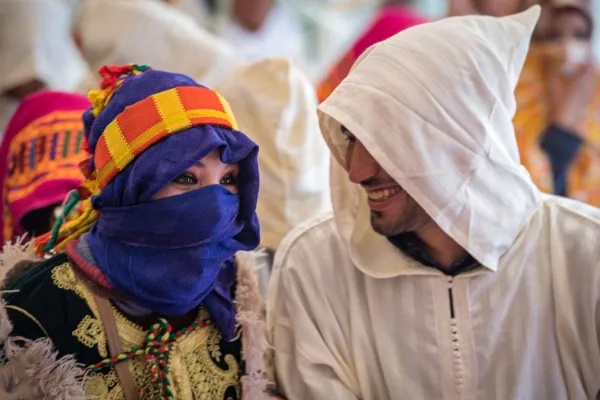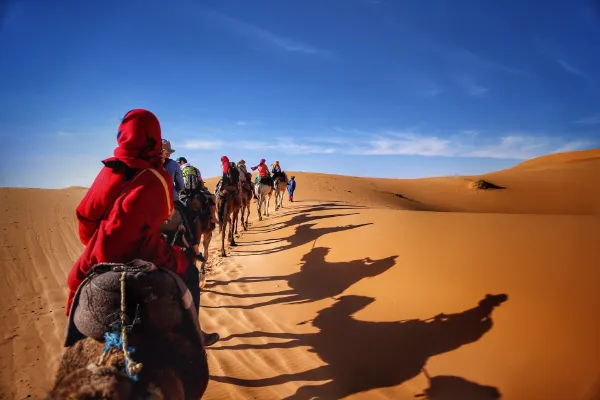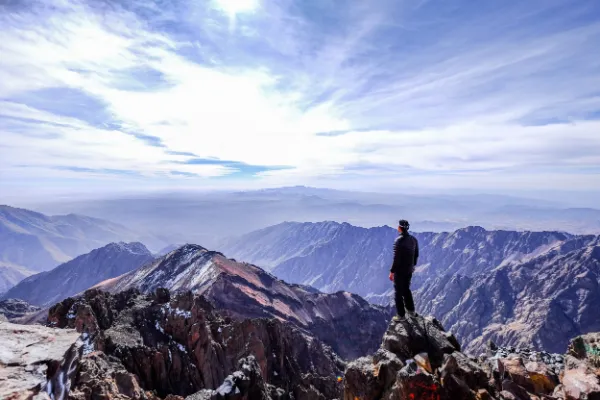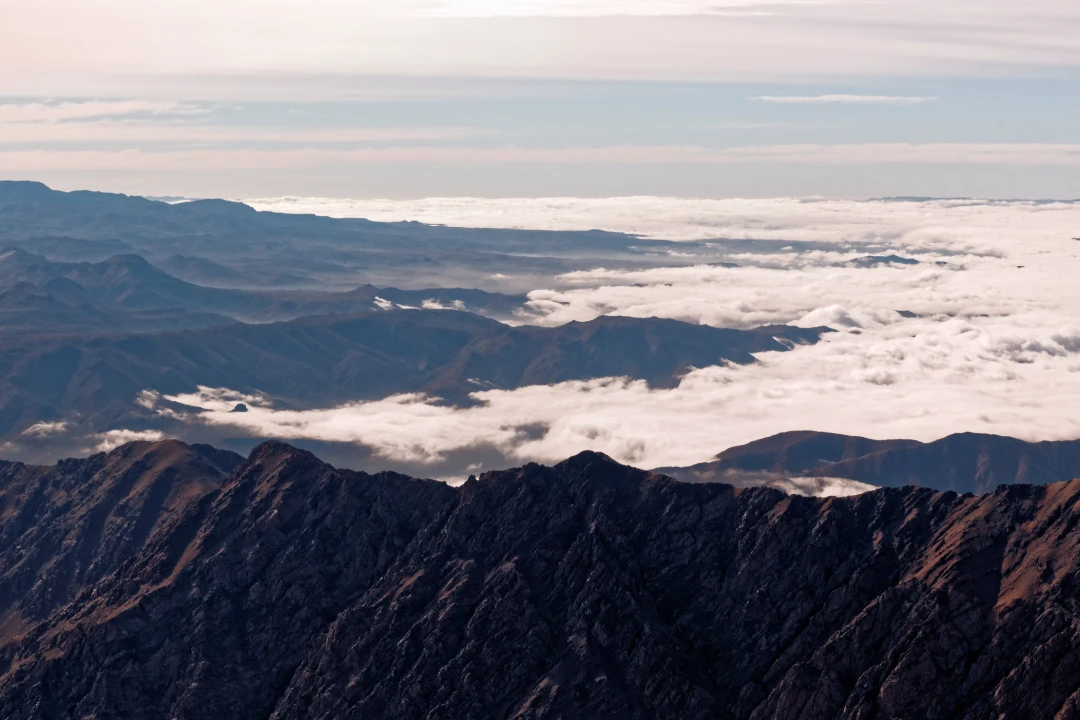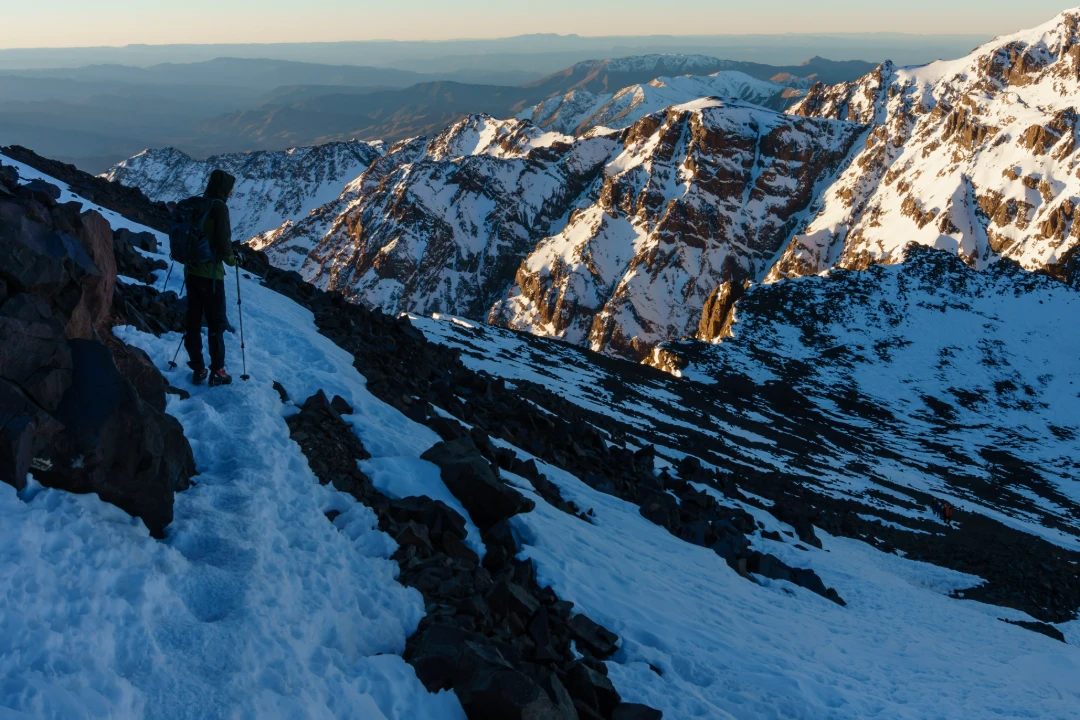
Hiking in Morocco’s Atlas Mountains - Toubkal Summit
Hiking in Morocco’s Atlas Mountains: Discover the Ultimate High Atlas Adventure
Morocco’s Atlas Mountains stand as one of the most captivating hiking destinations in North Africa. Stretching over 2,500 km across Morocco, Algeria, and Tunisia, the Atlas range is divided into three sections: the Middle Atlas, the Anti-Atlas, and the breathtaking High Atlas, home to the renowned Toubkal Summit.
For hikers seeking an authentic blend of nature, adventure, and Berber culture, the Moroccan Atlas Mountains promise an unforgettable journey. This article guides you through the trails, villages, seasons, and preparation needed for a perfect hiking experience in Morocco.
The Magic of the High Atlas Mountains
The **High Atlas Mountains** are often called “the roof of North Africa,” with Jebel Toubkal reigning as its highest peak at 4,167 m (13,671 ft). However, beyond Toubkal lies a vast network of trails ideal for all levels, from leisurely half-day hikes to challenging multi-day treks crossing valleys and remote passes.
Landscapes That Inspire
- Hiking in the Atlas Mountains reveals diverse landscapes:
- Verdant valleys with walnut, cherry, and apple orchards
- Berber villages with mud-brick houses blending into mountain slopes
- Terraced farmlands irrigated by ancient khettaras
- Snow-capped peaks contrasting with arid plains
- Crystal-clear rivers and cascading waterfalls
Each step immerses hikers in Morocco’s natural beauty, far from crowded medinas and coastal towns.
Popular Hiking Routes in the Atlas Mountains
1. Imlil to Toubkal Summit
The classic two-day trek begins from Imlil (1,740 m), Morocco’s trekking hub. Day one leads to the Toubkal Refuge (3,207 m) through Aroumd village and the Mizane Valley, while day two involves a pre-dawn ascent to watch the sunrise from North Africa’s highest point.
Highlights: Panoramic views stretching to the Sahara, passing small waterfalls, and meeting local Berber guides and muleteers.
2. Imlil to Azzaden Valley (Imlil – Tizi n’Tamatert – Tachedirt – Azzaden)
This moderate 3-4 day hike crosses Tizi n’Tamatert Pass (2,279 m) towards the remote Tachedirt village, continuing to Azzaden Valley and ending in Imlil or Ouirgane. It offers a peaceful alternative to the busy Toubkal route.
Highlights: Sleeping in village gîtes, traversing high passes, seeing traditional farming life.
3. Ouirgane Valley Hikes
For easy day hikes, Ouirgane offers gentle trails through olive groves, juniper forests, and red-earth hills with views of distant snow-capped peaks. Ideal for beginners or cultural walks with minimal elevation gain.
4. Mgoun Massif
The Mgoun Massif (Jebel Mgoun, 4,071 m) in the Central High Atlas is a hidden gem for experienced trekkers. Routes often start from Agouti village and traverse the Ait Bougmez Valley, nicknamed “the Happy Valley,” before climbing Mgoun’s ridge.
Highlights: Less crowded than Toubkal, dramatic ridges, limestone gorges like the Mgoun Gorge (Ighil n’Oumsoud), and authentic Berber hospitality.
Cultural Encounters: Meet the Berber Communities
Hiking in Morocco is incomplete without meeting its indigenous people – the Imazighen (Berbers). Their villages, constructed from clay and stone, are nestled along river valleys and slopes. You will often be welcomed with:
- Mint tea (atai) served with sugar cubes
- Freshly baked bread (khobz) with olive oil or argan oil
- Tales about mountain life, traditions, and farming practices
Many local families open their homes as gîtes, providing authentic meals and warm hospitality that transform a trek into a cultural immersion.
Best Season for Hiking in the Atlas Mountains
The Atlas Mountains are accessible year-round, but ideal seasons are:
- Spring (March-May): Wildflowers bloom, rivers flow with melted snow, and temperatures are mild.
- Autumn (September-November): Crisp air, clear skies, and comfortable daytime temperatures.
- Summer (June-August): Cooler in high altitudes but hot at lower elevations; ideal for Toubkal or Mgoun summit climbs.
- Winter (December-February): Snow transforms trails into alpine routes requiring crampons and ice axes; winter ascents are for experienced hikers only.
Preparing for Your Hike
Fitness and Training
Even moderate hikes involve continuous elevation gains. Prepare with cardio exercises, stair climbing, or local hill hikes in your country before arrival.
Equipment Checklist
- Sturdy hiking boots with ankle support
- Trekking poles (helpful for descents)
- Layers of clothing: moisture-wicking base, warm mid-layer, waterproof outer layer
- Hat, sunglasses, sunscreen (strong UV at altitude)
- 1.5-2L water bottle or hydration pack
- Snacks or energy bars
- Headlamp (essential for pre-dawn summit attempts)
- If trekking Toubkal in winter, crampons, gaiters, and ice axes are mandatory.
- Guides and Permits
- Hiring a local certified guide is highly recommended for safety, navigation, and cultural interpretation. For Toubkal Summit, national park permits and guides are mandatory for all trekkers since 2018 for security reasons.
Responsible Hiking and Sustainable Tourism
The Atlas Mountains’ fragile ecosystems face increasing pressure from tourism. Practice Leave No Trace principles:
Carry back all waste
Minimize campfire use
Respect wildlife
Dress modestly in villages
Support local guides, muleteers, and guesthouses for sustainable community income
Why Choose Toubkal Summit for Your Atlas Adventure?
At Toubkal Summit, we specialize in immersive treks that go beyond reaching peaks. Our experienced Berber guides ensure your safety while sharing their heritage, from cooking traditional tagine in mountain refuges to storytelling under the stars.
Whether you seek a Toubkal ascent, a multi-day Mgoun trek, or leisurely hikes through Azzaden and Ouirgane Valleys, we tailor each journey to your pace and interests, ensuring an authentic Moroccan mountain experience.
Conclusion
Hiking in Morocco’s Atlas Mountains is a journey through towering peaks, ancient Berber traditions, and landscapes that shift from verdant valleys to rugged alpine ridges. Each trail offers not just physical challenge but a chance to connect with the heart of Morocco.
Prepare your boots, pack your curiosity, and let Toubkal Summit guide you through the majestic Atlas Mountains – where every step tells a story and every summit reveals a new horizon.

